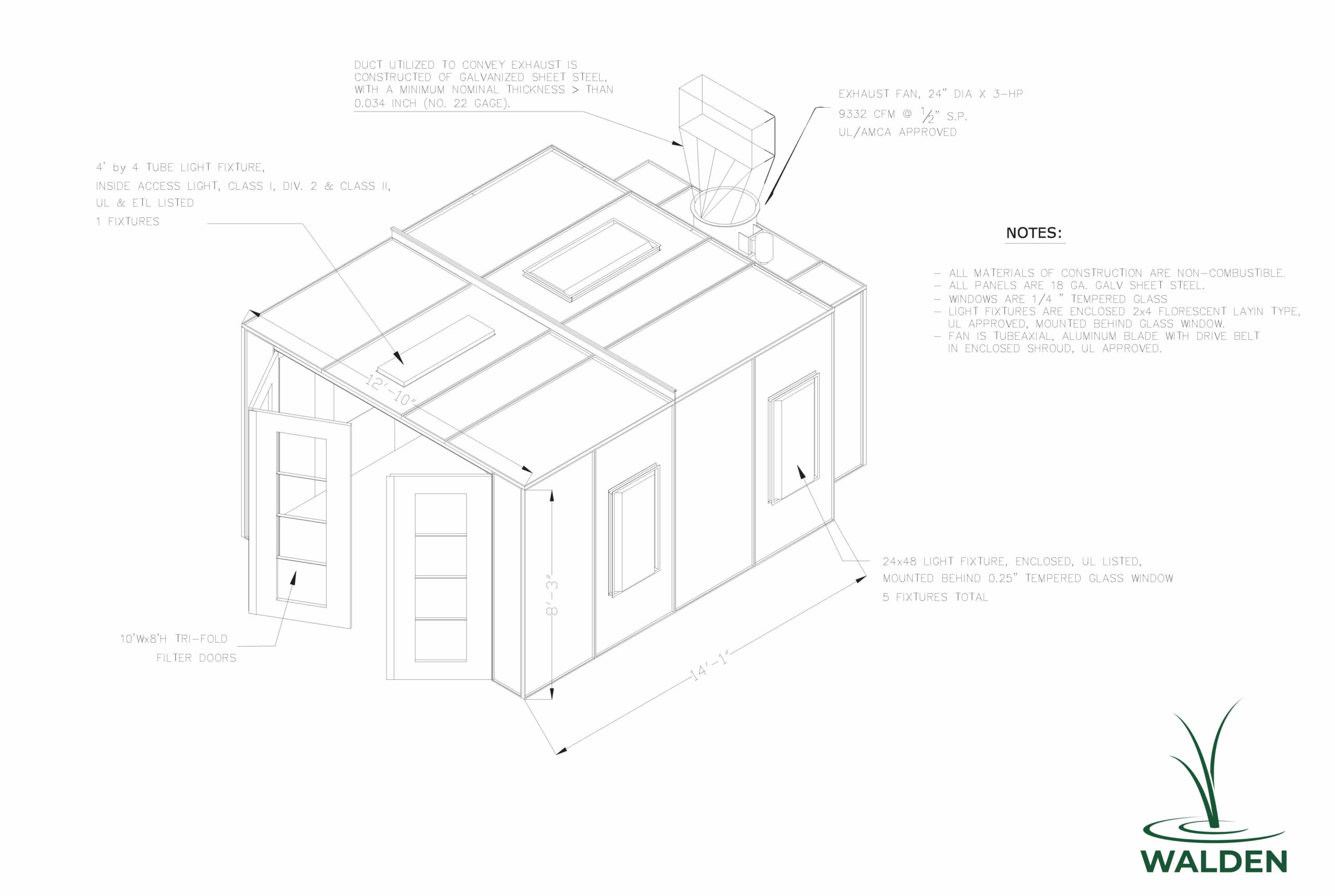Your Guide to Spray Booths, Part Three: New York State’s Air Code
There are many regulations that apply to spray booths in New York City, but this does not mean that spray booths located outside of the city are exempt from regulations. Regardless of your spray booth’s location, you must ensure that you are in compliance with local, state, and federal requirements. Several different factors determine whether or not your operation requires a State permit or registration: for example, the type of emissions your facility releases, the size of your facility, and where it is located.
In the case of the New York State Department of Environmental Conservation (NYSDEC or DEC), your facility may require an Air Facility Registration, Air State Facility Permit, or Air Title V Permit. To determine which is required for your facility, an experienced consultant should calculate facility emissions based on operating conditions and equipment specifications.
Medium-sized commercial industrial facilities may be required to obtain an Air State Facility Permit, while large facilities may be required to obtain an Air Title V (ATV) Facility Permit. For small facilities such as dry cleaners or body shops, it is likely that an Air Facility Registration would be required. Again, emission calculations and a DEC air code evaluation must be performed to establish what your facility needs.
An evaluation of the potential to emit (24/7/365) and projected actual emissions of the paints that are used or proposed to be used should be performed to determine if a NYSDEC Air Facility Registration can be obtained, or if the more complex Air State Facility Permit is required. The NYSDEC air program requires that all emissions at a site be included in the application.
Additional sources of emissions to be included in the DEC air permit application could encompass emergency generators, gasoline dispensing units, boilers or water heaters, and dust/fume collectors that handle exhaust from woodworking or cutting/welding activities. This is not an exhaustive list but drives home the point that emissions come from many unlikely sources. If you are not 100% certain, you should ask a professional if your business is subject to air pollution regulations and to identify which ones apply.
In some cases, a facility may be eligible for Emission Reduction Credits (ERCs). To apply, your facility must have demonstrably reduced nitrogen oxides (NOx), volatile organic compounds (VOCs), and particulate matter less than 10 microns (PM-10) emissions. You must provide evidence of having done so in your application using a baseline established by NYSDEC.
In Conclusion
As you can see, installing a spray booth requires quite a bit of work and coordination with regulating agencies, third-party inspectors, and other stakeholders. This is true whether you are in NYC or in other areas of the state. Furthermore, there are many other regulations that could be applicable to your situation. But without the in-house expertise needed to determine what applies to your specific spray booth, you could find that you are not in compliance, which could result in costly fines to your business.
Working with a consultant that has filed documentation for spray booth permits for many different types of organizations is the best chance that you have to protect your business, ensure the health and safety of your employees and the general public, and safeguard the environment. Walden’s air quality experts are available to help you navigate this process. Read about the air services that we offer here, and call 516-604-5684 to get in touch.


